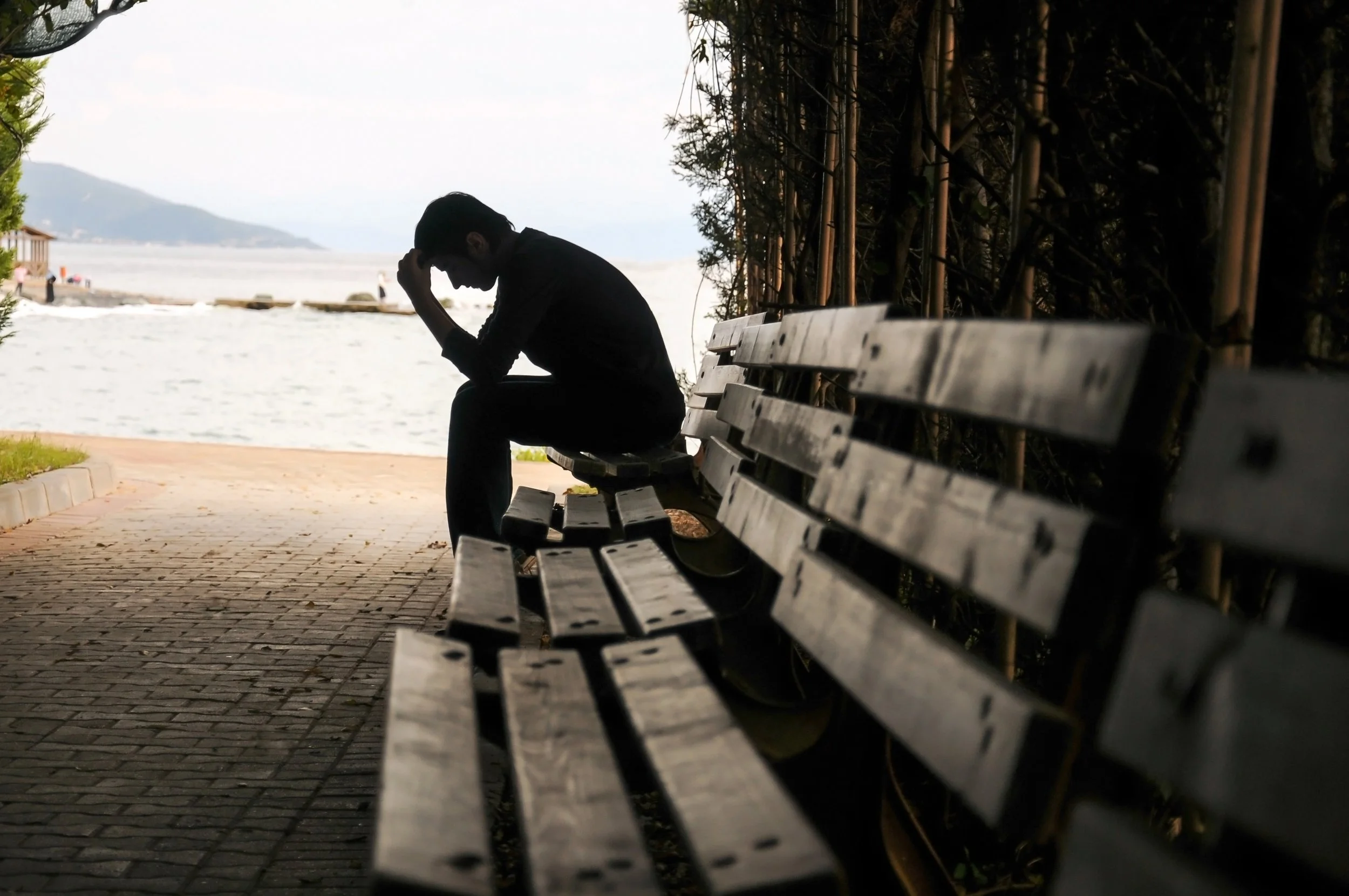
Anxiety
Throughout the last decade anxiety has been on the rise. Presently anxiety is the most prevalent mental health issue we face. One in five people struggle with anxiety across the developmental span: children, adolescents and adults. Unfortunately many people suffer in silence. Anxiety is a survival emotion meant to keep us safe from danger. Anxiety acts like an alarm system in our bodies that lets us know when we might be in unsafe or harmful situations. For some people the anxiety alarm system is alerted when there is no danger or our body alarm can be going off with an intensity we cannot manage. There is no doubt that within our culture many contributing factors increase the presence of anxiety in our lives. Problems arise when anxiety inhibits us from participating in aspects of our lives that we desire. Courage is the bridge that allows us to feel our anxiety and partake in our desired situation.
Whether or not a person requires medication, the counselling process is an essential part of managing anxiety. It is only through counselling that one is able to deeply understand anxiety and its impact regarding our thoughts, feelings, behaviours and relationships. Additionally practising mindfulness and visualization with a counsellor can assist the body symptoms of anxiety. If you find anxiety is getting in the way of you living your life – you are not alone. Many people seek counselling professionals for help.
Types of Anxiety
-
Separation Anxiety is excessive anxiety when anticipation or experiencing separation from home or loved one. When separated from a loved one, these people worry about the harm or disappearance of a loved. Due to this worry, some children/adolescent will be persistently reluctant or refuse to go to school or to be without loved ones. If they are separated from a loved one they will have physical discomfort and cannot stop thinking about it all day. Some people experience repeated nightmares with themes of separation.
-
Social Anxiety refers to an excessive fear of
· Embarrassing self
· Being negatively evaluated by others
Due to this fear, people suffering with social anxiety will avoid feared social situations such as a cafeteria or mall. There can be a fear that signs of anxiety will be visible and/or a tendency to misread what others think.
-
People suffering from Post Traumatic Stress can experience high levels of anxiety when they fear re-experiencing the traumatic event. People suffering from this type of anxiety can be easily startled, have sleep problems and/or avoid or numb the feeling.
-
We all feel sad at different times in our lives. Major depression is when sadness negatively impacts life for a long period of time. People struggling with depression feel a sense of severe despair like there is no light at the end of the tunnel. Major depression impacts every aspect of life: physical, emotional, relational, work and spiritual. Some people have major depression once in their life while others have it several times.
People struggling with depression have at least two or more of these symptoms that lasts more than two weeks:
· Tired and loss of energy almost everyday
· Feelings of worthlessness
· Indecisiveness
· Insomnia or hypersomina (excessive sleep) almost everyday
· Loss of enjoyment or pleasure in almost all activities
· Restlessness or feeling slowed down
· Thoughts of death or suicide
· Significant gain or loss of weight
· Irritability and/or anger outbursts
· Drug or Alcohol Abuse
Whether or not a person requires medication, the counselling process is an essential part of understanding major depression. It is only through counselling that one is able to become aware of how depression can impact our thoughts, feelings, behaviours and relationships. If you find depression is getting in the way of you living your life – you are not alone. Many people seek professionals like us for help.
We also work with clients suffering from Postpartum Depression and Minor Depression.
-
Generalized Anxiety refers to a persistent tendency to worry excessively and uncontrollably about a variety of themes:
· school work
· family/friends
· pets
· world events
· being late
· personal belongings
Generalized Anxiety is associated with high intolerance of uncertainty, muscle tension, sleep problems, irritability, fatigue and difficulty concentrating or making decisions.
-
People who suffer with panic attacks are deeply concerned about the re-occurrence of an unexpected panic attack. Even if the panic attack has never reoccurred, people are worried it will happen again. There can be a fear of something bad happening as a result of the panic such as dying, going crazy, embarrassing self, fainting or losing control. Often there is an avoidance of places associated with the feeling of panic (for example, a mall).
-
A phobia is excessive fear of one particular object or situation. For example an excessive fear of:
Animals or insects e.g., dogs, spiders
Natural environment e.g., storms, water
Specific situations e.g., tunnels, heights
Other types e.g., vomiting, clowns
People suffering with phobias will avoid the feared object/situation with determination. Anxiety is triggered in the presence of feared stimuli or when anticipating the feared stimuli.
-
Obsessions are recurrent, unwanted thoughts or images that create distress. Compulsions refer to repetitive behaviours or mental acts. When there are unwanted thoughts or images people with Obsessive-Compulsive tendencies will repeat a behaviour to diminish the negative impact of the unwanted thoughts or images. Some of Obsessive-Compulsive themes include but are not exclusive to: washing/cleaning, repeated actions, reassurance seeking, hoarding, checking, counting, ordering/arranging and tapping.


